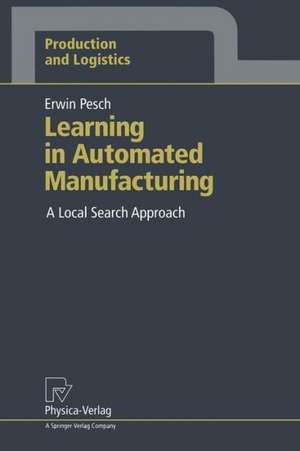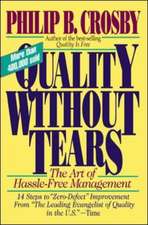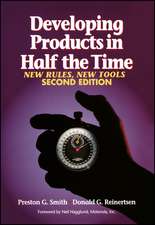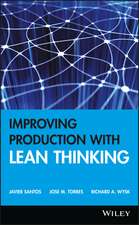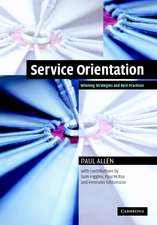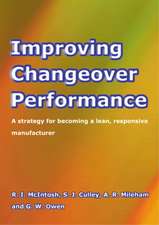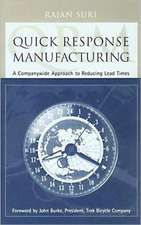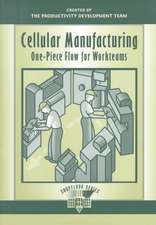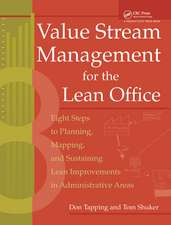Learning in Automated Manufacturing: A Local Search Approach: Production and Logistics
Autor Erwin Peschen Limba Engleză Paperback – 30 aug 1994
Preț: 386.81 lei
Nou
Puncte Express: 580
Preț estimativ în valută:
74.01€ • 77.49$ • 61.24£
74.01€ • 77.49$ • 61.24£
Carte tipărită la comandă
Livrare economică 07-21 aprilie
Preluare comenzi: 021 569.72.76
Specificații
ISBN-13: 9783790807929
ISBN-10: 3790807923
Pagini: 272
Ilustrații: XIII, 257 p. 3 illus.
Dimensiuni: 155 x 235 x 14 mm
Greutate: 0.39 kg
Ediția:Softcover reprint of the original 1st ed. 1994
Editura: Physica-Verlag HD
Colecția Physica
Seria Production and Logistics
Locul publicării:Heidelberg, Germany
ISBN-10: 3790807923
Pagini: 272
Ilustrații: XIII, 257 p. 3 illus.
Dimensiuni: 155 x 235 x 14 mm
Greutate: 0.39 kg
Ediția:Softcover reprint of the original 1st ed. 1994
Editura: Physica-Verlag HD
Colecția Physica
Seria Production and Logistics
Locul publicării:Heidelberg, Germany
Public țintă
ResearchCuprins
I. Local Search and Extensions.- 1. Introduction — Local Search.- 2. Infamous Scheduling Problems.- 3. Simulated Annealing.- 4. Tabu Search.- 5. Genetic Algorithms.- II. The Traveling Salesman Problem.- 1. Introduction and Survey.- 2. Effective Genetic Local Search.- 3. Bounded Genetic Local Search.- 4. Variable Depth Search Based Learning.- III. Job Shop Scheduling.- 1. Introduction — Conventional and New Solution Techniques.- 2. Evolution Based Learning.- 3. Learning by Constraint Propagation.- 4. Decomposition Based Learning.- IV. Flexible Manufacturing Systems.- 1. Clustering in Cellular Manufacturing.- 2. Factory Layout Planning.- 3. Workload Balancing.- Epilogue.- References.
